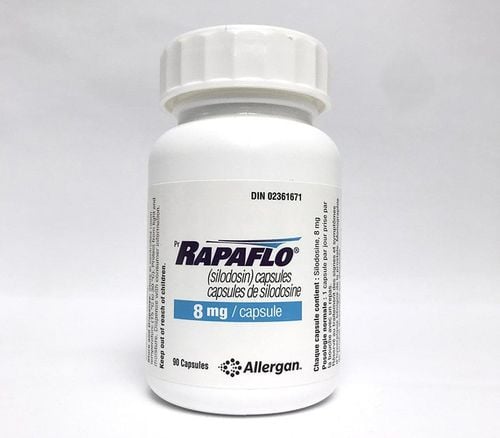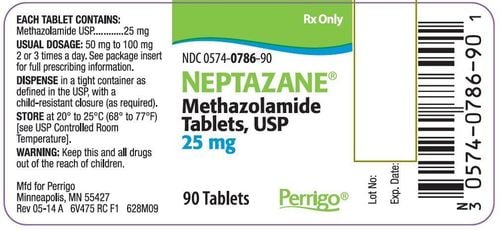This is an automatically translated article.
Antilirium contains physostigmine, a parasympathomimetic alkaloid with reversible cholinesterase inhibitory activity. Antilirium is therefore used to treat glaucoma and slow gastric emptying. However, the use of the drug needs to be very careful, because it may not be safe in some cases.1. Uses of Antilirium
Antilirium drug has the main ingredient physostigmine, which has the ability to enhance acetylcholine signaling in the brain and cross the blood-brain barrier with the main mechanism of preventing the hydrolysis of acetylcholine by acetylcholinesterase at acetylcholine transmission sites. Therefore, the drug Antilirium is mainly used for the following purposes:Treatment of glaucoma Slow gastric emptying Treatment of anticholinergic poisoning (poisoning by substances such as atropine, scopolamine,...) Reversing the inhibition neuromuscular blocker Antidote to poisoning Datura stramonium and Atropa belladonna Treatment of orthostatic hypotension in some recent trials Reverses undesirable effects of benzodiazepines such as diazepam, alleviating anxiety and stress. Another proposed use is to reverse the effects of barbiturates
2. Contraindications of Antilirium
Antilirium is contraindicated in patients with hypersensitivity to any of the ingredients or in patients with the following health problems:
Asthma Diabetes Bladder obstruction or other urinary problems Obstruction Intestinal tract Heart disease Skin necrosis or tissue infection, tissue lack of blood supply The physician should be informed if the patient is allergic to sulfites, has taken ultracet or bupropion during the pre-treatment period.
3. Usage and side effects of Antilirium
Antilirium is usually given by injection into a muscle or vein through an IV. When injected intravenously, Antilirium needs to be injected slowly to slowly introduce the drug into the body, while vital signs such as pulse, temperature, blood pressure, and oxygen levels should be closely monitored to detect early complications. The dose of Antilirium may need to be repeated depending on the patient's response to the drug.
Some possible side effects when using Antilirium drugs include:
Cholinergic syndrome when taking Antilirium overdose Increased urination or bowel movements Stomach cramps Nausea, vomiting, diarrhea Dizziness, headache, loss of appetite Increased sweating Slow heart rate Seizures In addition, certain other drugs can interact with Antilirium including prescription and over-the-counter medicines, vitamins, or herbal products. Therefore, patients need to declare all medications they are taking to their doctor for advice such as changing the dose or duration of use to avoid harmful drug interactions.
In short, taking the drug according to the doctor's instructions always brings many benefits as well as limiting unnecessary side effects to the patient's health. Therefore, the use of the drug should be consulted by a qualified doctor.
Please dial HOTLINE for more information or register for an appointment HERE. Download MyVinmec app to make appointments faster and to manage your bookings easily.













